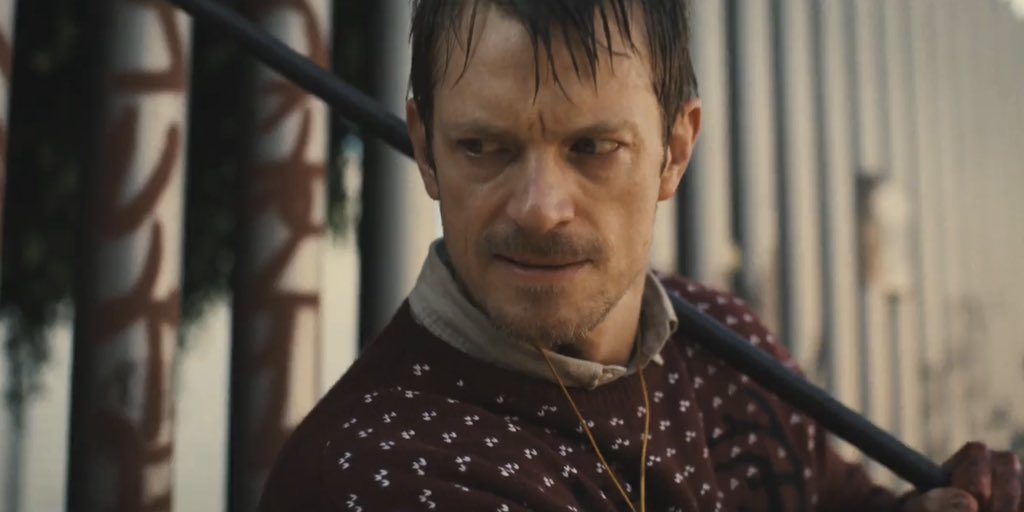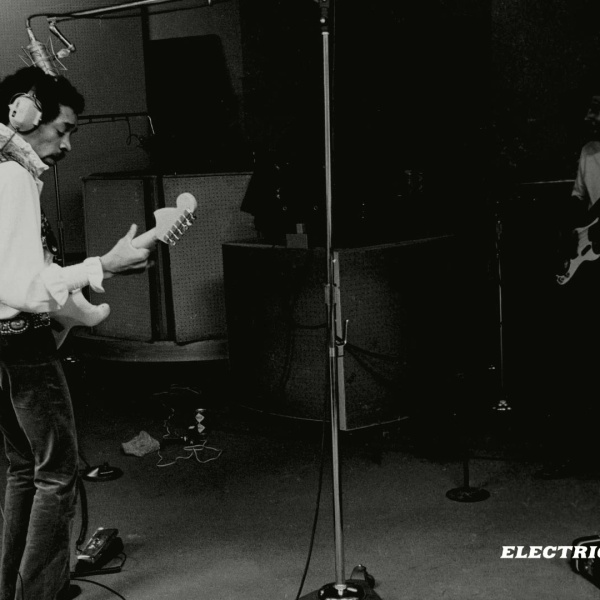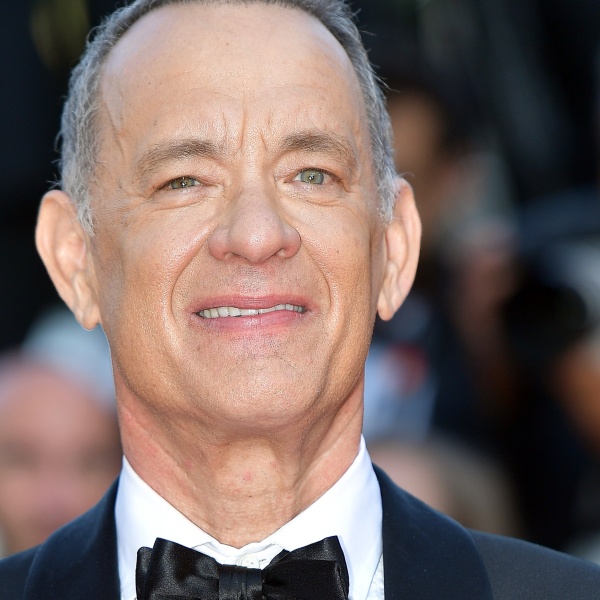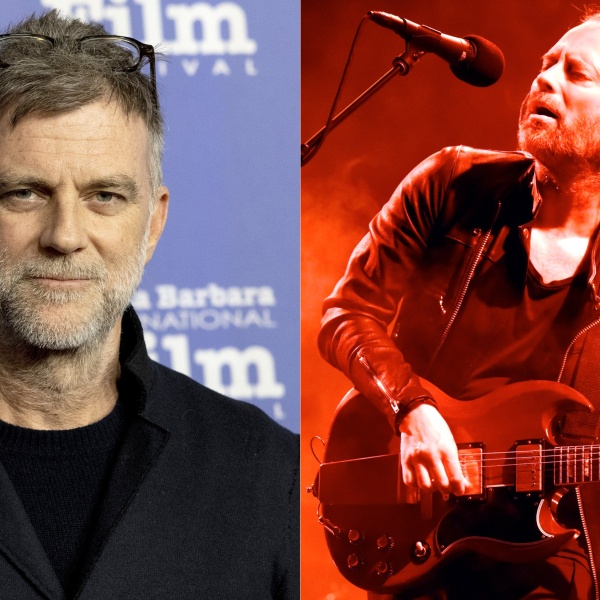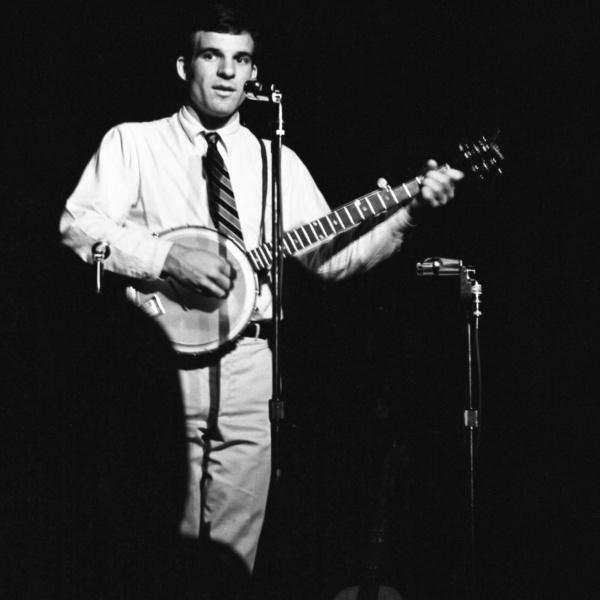“Silent Night” marks John Woo’s first American action film since 2003’s all-too-fittingly titled “Paycheck,” and the legendary Hong Kong auteur seems eager to make up for lost time. There are at least two decades’ worth of John Woo-ness crammed into the opening minutes of this hyper-florid yuletide “Taken” riff, which starts with Joel Kinnaman — dressed in a Rudolph sweater, complete with a poofy 3D nose — sprinting after some Mexican gang members in slow-motion while a computer-generated red balloon drifts skyward in the distance and a music box twinkles over the soundtrack.
Despite the absence of flying doves (here, and throughout the rest of the story as well), the sheer degree of a melodrama that’s infused into this otherwise unremarkable chase sequence leaves no doubt as to who must have directed it. And while the rest of “Silent Night” is so abysmal that its prologue might as well be the last hour of “Hard Boiled” by comparison, it’s hard to imagine a more appropriate introduction to a movie whose only upside is the vulgar thrill of watching something that feels utterly anonymous and wildly idiosyncratic at the same time.
On paper, the prospect of John Woo trying his hand at “Taken” — or even “Peppermint” — might seem promising, as the vigilante sub-genre has suffered from extreme incompetence behind the camera since the moment Pierre Morel brought the whole thing back from life support (the best of these movies were shot with a lack of vision that makes them hard to watch, while the rest were shot with a dinginess that makes them hard to see). Yes, “Silent Night” is a ripoff of a ripoff that ultimately steals as much from John Wick as it does from Liam Neeson, but even that could be more of a feature than a bug in the hands of a filmmaker with a history of transforming the tropes of pulp fiction into the stuff of pop opera.
And Woo’s involvement isn’t even the most pronounced selling point here. That would be Robert Archer Lynn’s script, which unfolds without a single line of dialogue. You see, once Kinnaman’s Brian Godluck (lol) finally catches up with the gang members who just killed his son during a drive-by shootout with their rivals, he’s rewarded for his efforts by getting shot in the vocal cords at point-blank range. The bad news is that Brian will never be able to talk again, which is a real problem for someone who’s already struggling to express their grief (his wife, played by a thankless Catalina Sandino Moreno, peaces out of the picture in a hurry after Brian stops responding to her texts). The good news is that stylized movie violence is a language unto itself, and it only takes a handful of very, very long training montages to learn how to speak it fluently.
You know what’s interesting about stripping all of the dialogue out of a very simple, very stupid vigilante story about an angry white man who slaughters half the Latino population in his neighborhood in order to get to the gang leader who killed his son? It makes almost no difference whatsoever. An Aaron Sorkin script without dialogue? Sure, that might be an interesting challenge (how do you say “we wanted you to be the first ones on this plane to know that our armed forces killed Osama bin Laden” with your eyes?). But, with all due respect to immortal bon mots like “I’d like to take his face… off,” an American John Woo movie without dialogue is like a Sofia Coppola movie without a thermonuclear explosion — you don’t really feel the absence of what’s “missing.”
In part, that’s because our hero Brian Godluck doesn’t have much to say in the first place. And in part that’s because Woo’s relentless camera movements have always been far more expressive than his words (in this case, the zooms and pivots are egregious in a way that suggests Woo didn’t trust his cast to convey their characters’ emotions). In practice, the quickly ignorable conceit becomes nothing more than an invitation for Woo to indulge in his natural tendencies. Once upon a time, that might have been a good thing.
Once upon a time, the Mayberry-like flashback in which Brian’s son becomes the collateral damage of a gang shootout that spills into the Godluck’s suburban neighborhood — a baroque spectacle lensed with the chintzy softness of a political campaign ad — might have teed up an explosive descent into hell, and the moment where Brian rips the cross from around his own neck might have laid the groundwork for a hyper-violent crisis of faith. Once upon a time, the hilarious shots of Brian filling out his kitchen calendar (“12/24: Kill Them All”) might have paid off with a climactic suicide mission so balletic that families wanted to watch it every Christmas instead of “The Nutcracker.”
In the unholy “Silent Night,” however, all of this flowery excess builds to nothing more than an ugly assault sequence in which the blandness of this material finally overwhelms whatever eccentricity Woo brings to it. After an excruciatingly drawn-out hour that would unfold at the pace of an advent calendar even without the useless subplot about a local detective (Scott Mescudi) who’s sympathetic to Brian’s fight (and gives our grieving hero tacit permission to murder every Mexican he sees), “Silent Night” finally arrives at its much-anticipated payoff only to bust out a gun-fu stairway brawl so basic it feels like a pre-viz rough draft of the “Atomic Blonde” scene it’s copying.
The journey there may be John Woo-coded all the way down to its DNA, but the fireworks themselves are fourth-rate Hollywood copy-paste, all the way down to the obligatory computer-assisted long-take that only manages to make everything in it feel that much less credible. The film’s only redeeming fight: A visceral kitchen brawl in the second act that, by happenstance, feels like it’s side-eying David Fincher for having the stones to make another hitman movie called “The Killer.”
I don’t know if John Woo has been stewing over the success of 87Eleven’s action choreography, or if he just lost all interest in this deeply banal story by the time he got around to filming its grand finale; whatever the case, “Silent Night” rewards your patience with a massive piece of coal. The cinema of John Woo does not lend itself well to half-measures. In that light, the kindest thing I can say about his latest film — the likely nadir of a body of work that’s made all the more endearing by its wild highs and lows — is that its worst moments don’t resemble the cinema of John Woo at all.
Grade: D
Lionsgate will release “Silent Night” in theaters on Friday, December 1.
